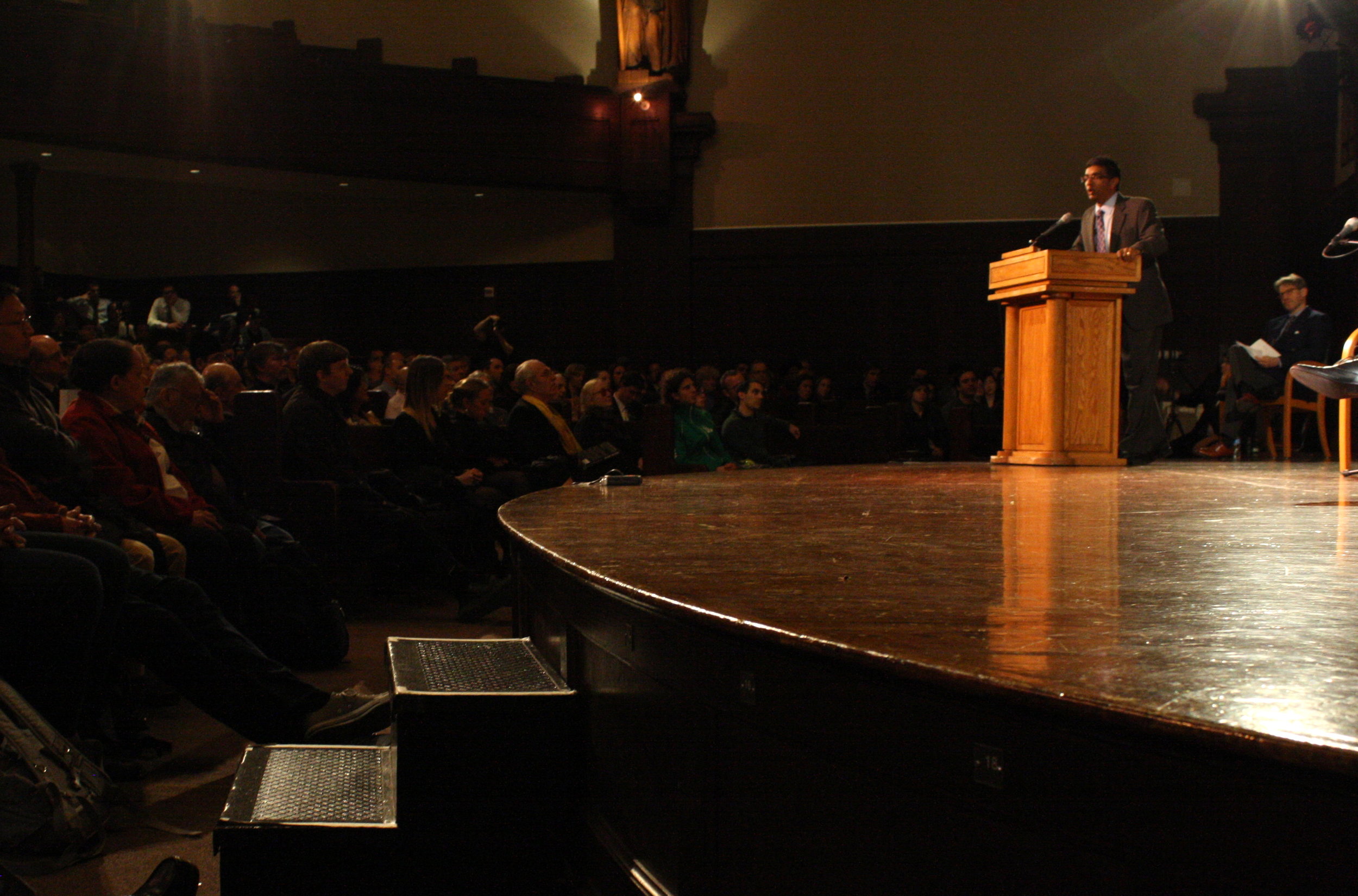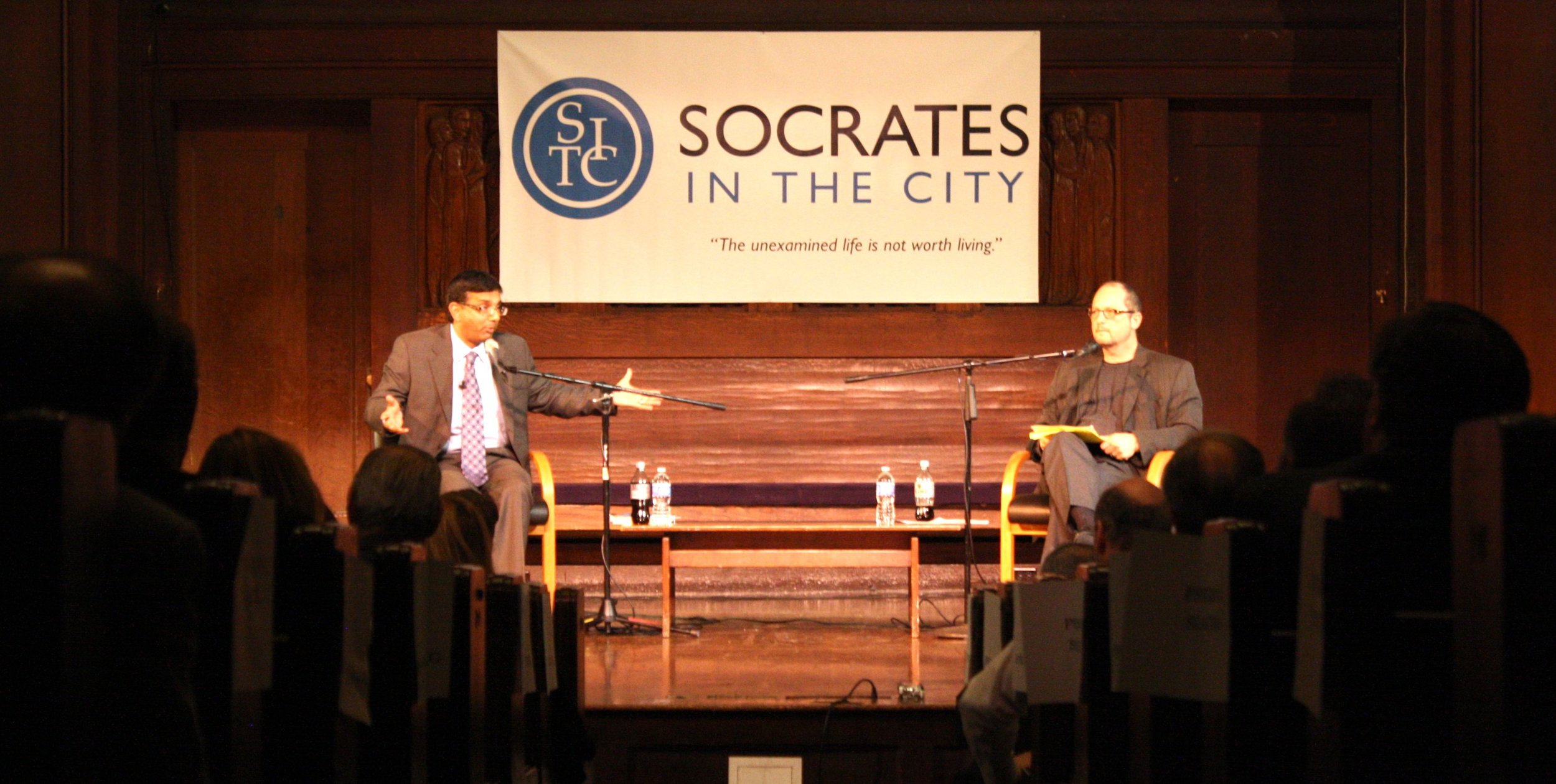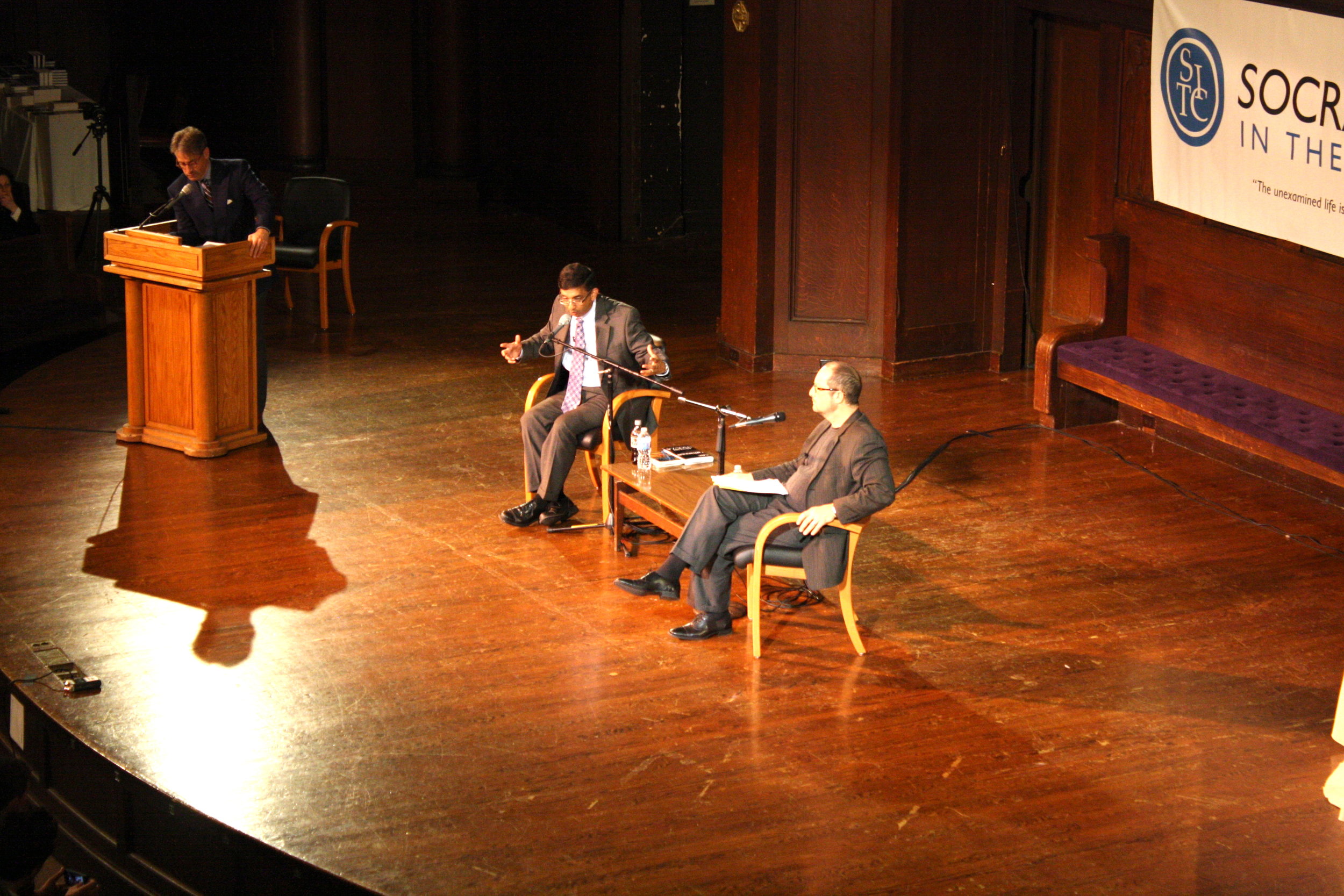D'Souza Debates at Socrates in the City
 The New York Society for Ethical Culture was filled on Monday evening for the debate between President Dinesh D’Souza and agnostic New Testament scholar Dr. Bart Ehrman. Pres. D’Souza and Ehrman discussed the problem of theodicy, asking the question, “If God is good, and God is all powerful, then why does evil exist?”
The New York Society for Ethical Culture was filled on Monday evening for the debate between President Dinesh D’Souza and agnostic New Testament scholar Dr. Bart Ehrman. Pres. D’Souza and Ehrman discussed the problem of theodicy, asking the question, “If God is good, and God is all powerful, then why does evil exist?”
The debate was hosted by Socrates in the City, an organization run by Christian author and speaker Eric Metaxas. Before the debate, Metaxas introduced the two orators; D’Souza represented the theistic perspective, and Ehrman, Metaxas said jokingly, represented “the devil himself.” Each speaker was given 15 minutes to deliver his side of the debate, a five minute rebuttal, cross examination time and a two-minute closing statement.
In his opening speech, Ehrman said he was originally a "born-again Christian" who taught a class on theodicy from a Christian perspective to introduce students to different biblical ideas. The question Ehrman had posed to the class is the same question that eventually converted him to atheism: “Why suffering?”
This question, according to Ehrman, recurred in his life during his various involvements in academia. Ehrman gradually became persuaded that God couldn’t exist, because if God were both good and powerful, then there wouldn’t be any suffering.
Ehrman's line of argumentation stemmed from the proposition that suffering disproves the existence of God. Ehrman spent his first 15 minutes explaining suffering and its incompatibility with the existence of a simultaneously omnipotent and perfectly good God.
Pres. D’Souza began his rebuttal by identifying a hidden premise in Ehrman’s syllogism. D’Souza pointed out that Ehrman was operating under the assumption that God lacks a moral justification for permitting evil to exist. “That,” D’Souza said, “is the question we really have to ask.”
There are two kinds of suffering, according to Pres. D'Souza. The first kind of suffering is moral evil: suffering inflicted upon people by other people, like the Nazis or those involved in the Spanish Inquisition. D’Souza said that this kind of suffering was easy to explain because man has free will. God, according to D’Souza, has a moral justification for allowing humans to have free will, and thus God has moral justification for allowing humans to inflict suffering upon others.
According to Pres. D’Souza, the second kind of suffering is suffering that results from nature, such as hurricanes and earthquakes. His explanation for this was that we live in a fine-tuned universe, and in this fine-tuned universe there are laws that necessarily exist that have potentially negative side effects.
Pres. D’Souza discussed tectonic plates quite extensively throughout the debate, citing them as an example of a part of nature that is both necessary and potentially harmful. The crux of D’Souza’s argument was that if God wanted to design a lawful world with humans in it, the fine-tuned universe would fit his model.



